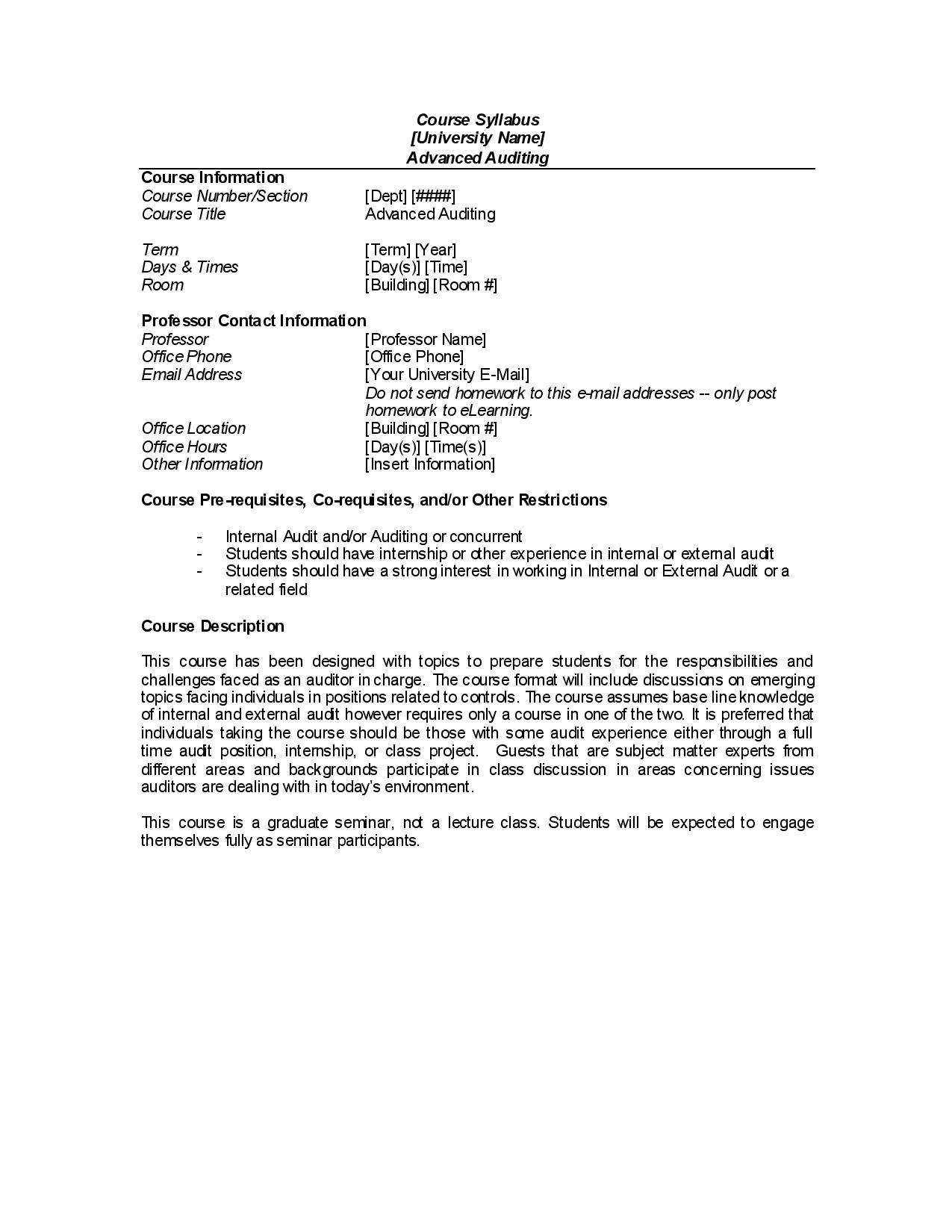Advanced Auditing Course Sample Syllabus

Course Description
This course has been designed with topics to prepare students for the responsibilities and challenges faced as an auditor in charge. The course format will include discussions on emerging topics facing individuals in positions related to controls. The course assumes baseline knowledge of internal and external audit but only requires a course in one of the two. It is preferred that individuals taking the course should be those with some audit experience either through a full-time audit position, internship, or class project. Guests that are subject matter experts from different areas and backgrounds participate in class discussions in areas concerning issues auditors are dealing with in today’s environment.
This course is a graduate seminar, not a lecture class. Students will be expected to engage themselves fully as seminar participants.
Student Learning Objectives and Outcomes
- Identify the key skills required for internal/external audit roles.
- Be able to identify and perform research on areas of internal audit or external audit not previously explored.
- Improve techniques and ability to network with all levels of internal and external audit professionals.
- Determine key strengths and weaknesses in performing audit engagements and how to improve.
- Be able to recognize various roles with Sarbanes-Oxley and its impact on audit.
- Understand the impact of the current regulatory actions on the audit profession.
- Learn ways to improve communication with all levels of management.
- Improve writing techniques for audit reports and reporting to an audit committee.
- Understand the relationship of various professional organizations, the benefits of an extended network and how these groups inter-relate.
- Understand the current state of Enterprise Risk Management and the use of Control Self-Assessment as a tool for risk evaluation.
- Understand key components of managing the audit group.
- Understand the importance of technology in an audit group and the detection of fraud.
- Identify best practices related to internal and external audit and what are the motivators.
- Identify key components of being an audit consultant and be able to perform an audit consulting engagement.
Required Textbooks and Materials
- The textbook on Internal Audit published by IIA International will be used. The textbook is titled Internal Auditing: Assurance and Consulting Services, Urton Anderson, Mike Head, Sri Ramamoorti, Kurt Reding, Mark Salamasick, Cris Shreve, and Paul Sobel.
- Access to an external audit book of your choice. Textbook: Auditing and Assurance Services, A Systematic Approach, 7th Edition, by Messier, Glover & Pruitt.
- Each student will be given access to Protiviti KnowledgeLeader™ as part of the class. Information will be used from the website during class and should also be used as a research tool.